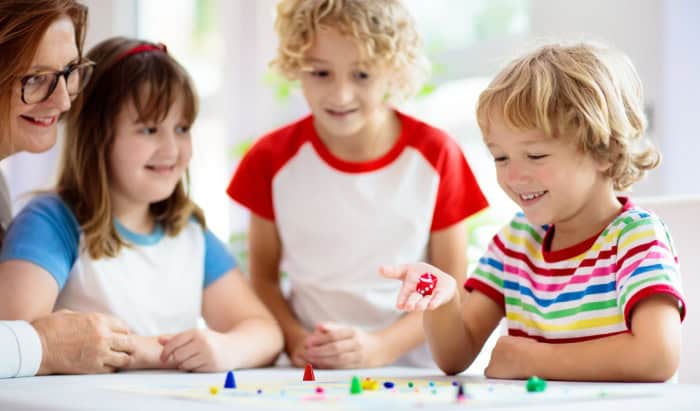School can be enormously stressful environment for many children and half term provides the opportunity to rest, reset and re-connect. Socialising and family are very important to a well-rounded development and here mental health expert Noel McDermott looks at positive parenting tips for the half-term break.
The Benefits of Family Time
Don’t underestimate ‘family time, remember how creative we became in the pandemic, creating games and ways of having fun together as a family unit. Make more time for family meals and conversation, dust off the board games and spend an afternoon battling it out as a family. We went to these core activities during a time of crisis, and they helped us be resilient in the face of challenge and they remain the core resilience activities. Loving, healthy active time together is the centre of everything, and time is the most precious resource we can give. Downtime is vital during the holidays, not just to rest but to rest with each other. That’s what is needed, the reassurance of resting safely together.
Positive Parenting Tips for Parent & Child
- Benefits of helping others – it’s never too soon to learn the benefits of volunteerism. Helping others is evidence based to improve our wellbeing as actively supporting the ‘herd/clan’ is rewarded neurologically as species level survival activity. This can be anything from visiting a local nursing home to plating vegetables in the garden for those who don’t have the garden space!
Environmental activism – a major stressor for children today is concern about the environment and helping them access positive outlets for this with social action for change helps manage this and improve the world. - Contributing to social change – during this election time helping our kids become involved in the political process and contribute to civil society structures can be a great opportunity to bond in the family and develop broader social networks. Remember it’s about supporting your kids in developing their beliefs and expressing them in socially acceptable/democratic ways.
Prioritise Playtime – make time to play with your children; play is fundamental to the wellbeing and development of children of all ages. It is also a great way to reduce stress in adults. There’s a lot to be said for spending quality time with your child, through making happy memories, enjoying conversation, and playing together. - Encourage and organise playdates with their friends – friendships are a key resiliency factor for children and young people and half term provides the perfect opportunity to explore new friendships and support old ones in the more relaxed environment of home.
- Healthy digital boundaries – it is likely that children and young people will be using screens more often during the break, this is okay but make sure they are supervised and ensure appropriate content filters are active. Try to ensure that they have a balanced range of activities each day. Involve them in the discussions so that they feel part of the plan.
- Get the kids outside – it doesn’t have to be the great outdoors, your local park or even your garden is just as good. Don’t forget the importance of ‘park time’, it helps our psychological and physiological health. A walk-in nature, playtime in the garden, climbing trees in your local park all activate what is called biophilia, an inbuilt capacity we have to relate to and take comfort from other forms of natural life. Biophilic activities reduce stress responses and create a sense of connectedness and wellbeing, which is profoundly healthy for us.
- Exercise – get the kids on board and exercise as a family, take the kids for a run at lunchtime or do an online exercise class together, getting active for 20 minutes a day regulates your mood and is good for both body and mind.
- Treat your kids – have a list of those things your children especially like and treat them when you think they deserve it, they’ve worked hard at school and deserve some rewards. You also deserve treats – be kind to yourself.
Mental health expert Noel McDermott comments: “This half term look to achieve a healthy balance between online time and IRL (in real life). Don’t underestimate ‘family time’ and where possible take time in the day to engage directly with your children. This can be as simple as family mealtimes and making more time for conversation.”
Mental health expert Noel McDermott is a psychotherapist and dramatherapist with over 30 years’ work within the health, social care, education, and criminal justice fields. His company Mental Health Works provides unique mental health services for the public and other organisations. Mental Health Works offers in situ health care and will source, identify and co-ordinate personalised teams to meet your needs – https://www.mentalhealthworks.net/
- RV3-BB rotavirus vaccine at birth boosts microbiome - 8th May 2025
- No Mind Left Behind: Support the Carers - 4th May 2025
- Climate change causes longer pollen seasons in capital cities - 4th May 2025


